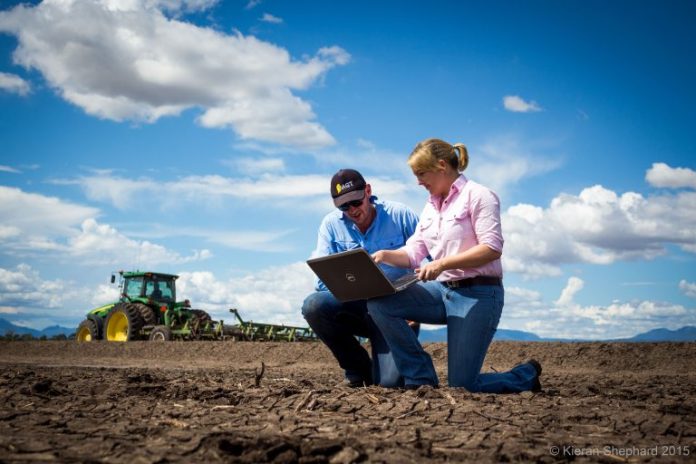Growing evidence points to the importance of green agricultural jobs for creating equitable and sustainable food systems. These Environment Agriculture Jobs offer employment prospects in the agricultural industry, supporting improved ecosystem services and reducing environmental damage.
In this post, we’ll talk about the value of green employment in agriculture, emphasizing how they support societal progress, economic expansion, and environmental sustainability.
What is meant by Environment Agriculture Jobs or green jobs?
The term “green jobs” in agriculture refers to occupations that support biodiversity preservation, greenhouse gas emission reduction, and the conservation and sustainable use of natural resources. They cover a wide range of pursuits, including, among others, ecotourism, sustainable fishing, agroforestry, and organic farming.
The shift to sustainable food systems, which are more robust, inclusive, and equitable, depends on green jobs in agriculture. The following are some of the main arguments that favor the necessity of green jobs in agriculture.
Economic Growth Contribution
Agriculture-related green occupations can significantly boost economic growth, especially in emerging nations. The International Labour Organisation (ILO) claims that green jobs in agriculture have the potential to boost productivity, produce money, and provide new employment opportunities.
Environment Agriculture Jobs can also encourage entrepreneurship, particularly among young people and women who are frequently shut out of the traditional labor market.
Green jobs in agriculture can boost the competitiveness of neighborhood farmers and agribusinesses, which will enhance exports and income by supporting sustainable agricultural practices.
Societal Advancement
Agriculture’s green jobs can advance social progress by enhancing the standard of living for farmers and rural areas. Smallholder farmers, who frequently rely on rain-fed agriculture and are sensitive to climate change, can become more productive and resilient by utilizing sustainable agricultural practices.
Because they offer chances for income production and economic diversification, green jobs in agriculture can also assist in lowering poverty.
Furthermore, by giving women a chance to engage in the workforce and have access to training and education, green jobs in agriculture can advance gender equality.
Sustainability in the Environment
Since they encourage resource conservation and sustainable usage, green employment in agriculture is essential for environmental sustainability. The usage of agrochemicals may be decreased, soil health can be improved, and biodiversity can grow by adopting sustainable agricultural practices such as agroforestry, conservation agriculture, and integrated pest control.
Additionally, by lowering greenhouse gas emissions and sequestering carbon in the soil, green jobs in agriculture can aid in lessening the effects of climate change.
Green jobs in agriculture can also aid in preventing land degradation, desertification, and deforestation by promoting sustainable land use practices.
Also Read: Benefits of Installing Residential Solar Panels
Security of Food and Nutrition
By encouraging the cultivation of various nutrient-dense, regionally appropriate crops, green jobs in agriculture can improve food security and nutrition. Green jobs in agriculture can strengthen food systems’ resilience and lessen smallholder farmers’ susceptibility to hunger by supporting sustainable farming practices.
In addition to promoting the production of nutritious foods like fruits and vegetables, green jobs in agriculture can also help people consume less processed food and animal byproducts, which are linked to non-communicable diseases.
Cultural heritage preservation
Agriculture’s green jobs can help preserve cultural heritage, including indigenous knowledge, cultural landscapes, and traditional farming methods. Green jobs in agriculture can aid in preserving the biodiversity of restricted animal breeds and crop varieties, which are frequently endangered by industrial agriculture and globalization.
The preservation of cultural landscapes, such as terraced fields, irrigation systems, and sacred groves, which are crucial to the identity and well-being of local populations, can also be facilitated through green jobs in agriculture.
Renewable Energy in Agriculture
Renewable energy is becoming increasingly important in agriculture, providing farmers with a reliable energy source that can help reduce their carbon footprint. Solar and wind energy can power irrigation systems, lighting, and other farm operations, reducing the dependence on fossil fuels and the associated greenhouse gas emissions.
Additionally, renewable energy can provide economic benefits for farmers, such as reduced energy costs and the potential to generate income from the excess energy produced by their renewable energy systems.
Conclusion
In conclusion, green jobs play a crucial role in the agriculture sector, providing farmers with new opportunities to conserve natural resources, reduce their environmental impact, and generate new sources of income.
Sustainable farming practices, renewable energy, and job creation in the green economy are all critical elements of a sustainable agricultural system that can help to ensure the long-term health and productivity of our agricultural systems while also contributing to the growth of the green economy.
By embracing green jobs in agriculture, we can build a more sustainable and resilient food system for future generations.
Also Read: Empower Your Career with Electrification Jobs Vacancies











